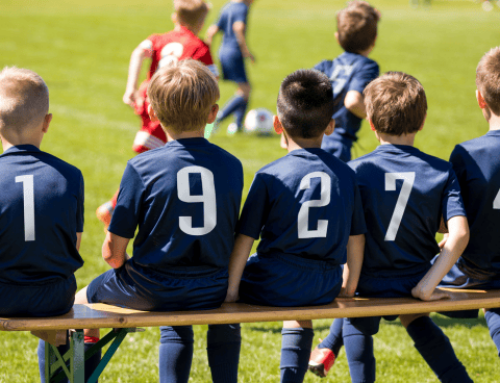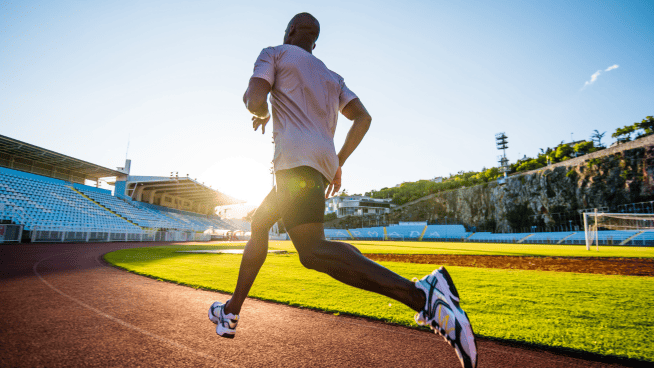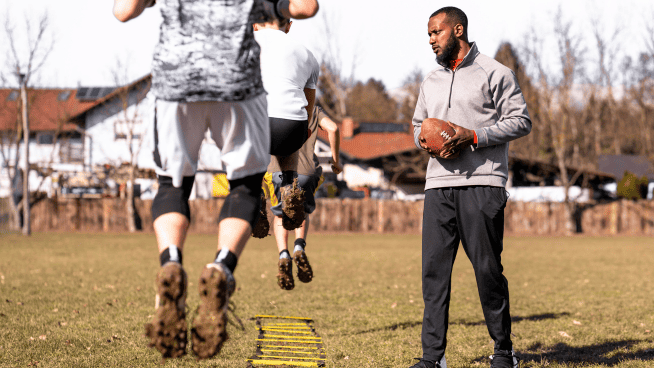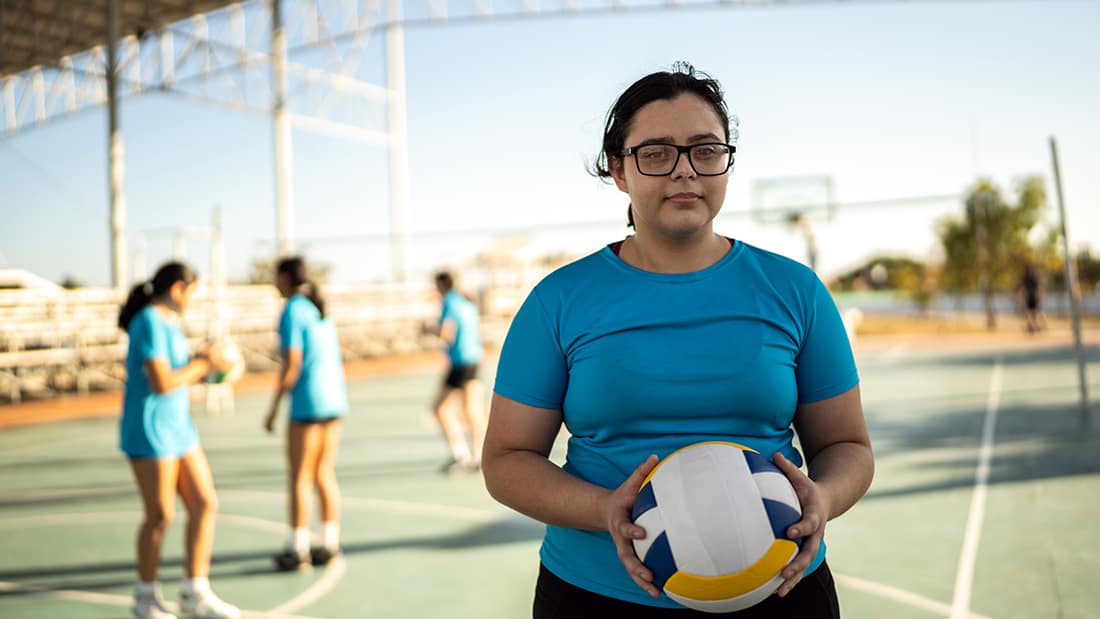Novak Djokovic wins 19th Grand Slam title at 34-years-old
On Sunday, the No.1 ranked men’s tennis player in the world, Novak Djokovic rallied from two sets down to win his second French Open title and 19th Grand Slam overall.
At 34-years-old, it’s quite impressive how Djokovic battled back against fifth-seeded Greek athlete Stefanos Tsitsipas, who is 12 years younger than the Serbian star.
Djokovic won the final three sets of the championship match 6-3, 6-2, 6-4.
Two days prior, Djokovic beat 13-time French Open champion, Rafael Nadal, in a semifinal that exceeded four hours.
Even in his mid-30s, Djokovic demonstrates how an older athlete may be able to extend their prime playing years using a combination of diet and other methodologies.
Think about athletes like LeBron James, who at age 35 and in his 17th season in the NBA, won the league championship and was named Finals MVP with the Los Angeles Lakers.
So besides genetics, how do these veterans take care of their bodies to perform at the highest level possible for a decade-plus?
Diet
There appear to be a growing number of pro athletes who have adopted plant-based diets to enhance their sports performance.
Djokovic is one of them, who told Graham Bensinger in an interview what foods he eats and what benefits he sees to being vegan:
And for James, he eats certain foods to help his body recover quickly from game-to-game. Anything that creates an inflammatory response, the Lakers’ star avoids:
More pros like Utah Jazz guard Donovan Mitchell are sharing their diets with the public, which any high school or college athlete will be able to find on social media:
And though Mitchell is 24-years-old, it only benefits him, in the long run, to maintain a healthy diet even in the early stages of his pro career.
Sleep
According to the Gatorade Sports Science Institute, all athletes need a minimum of nine hours of sleep per night to maximize muscle growth, healing, and recovery following stress (ex. Workouts, games, practice).
If nine hours of sleep is difficult to come by, consider squeezing a daytime nap for 30 minutes to an hour. Too long of a nap or napping too close to bedtime may interfere with regular sleep.
James understands the importance of sleep, especially the benefits of a nap.
But the average athlete may not have to go to the extreme of napping in a hyperbaric chamber:
Opt to nap in a bed versus on the couch when you can. And ensuring the mattress you sleep on is high quality and firm play an important role in guaranteeing good sleep.
Reigning NFL Offensive Player of the Year and Titans running back Derrick Henry explains how sleep impacts his performance:
Training
At age 52, three-time Super Bowl champion and Fox Sports personality Shannon Sharpe still looks like he could put on the pads for a few plays.
And he attributes that aesthetic to how he trains. Sharpe does not incorporate as much volume into his workouts as he may have years ago but the intensity remains the same:
Whether it’s through supersets, HIIT, upping the weight, or including more variety in the workout, any aging athlete does not have to sacrifice intensity by dialing back the volume.
In 2019, the same season the San Francisco 49ers appeared in the Super Bowl, Sports Illustrated reported team practices were among the shortest in the NFL.
“More is not more…Games are not the problem in [the NFL]. It’s the week, the cumulative effect,” said 49ers’ defensive end Dee Ford.
Both athletes young and old may implement any changes to their diet, sleep, and training to extend the window of their prime performance years. As the age-old adage goes, “work smarter not harder.”
Read More:
RECOMMENDED FOR YOU
MOST POPULAR
Novak Djokovic wins 19th Grand Slam title at 34-years-old
On Sunday, the No.1 ranked men’s tennis player in the world, Novak Djokovic rallied from two sets down to win his second French Open title and 19th Grand Slam overall.
At 34-years-old, it’s quite impressive how Djokovic battled back against fifth-seeded Greek athlete Stefanos Tsitsipas, who is 12 years younger than the Serbian star.
Djokovic won the final three sets of the championship match 6-3, 6-2, 6-4.
Two days prior, Djokovic beat 13-time French Open champion, Rafael Nadal, in a semifinal that exceeded four hours.
Even in his mid-30s, Djokovic demonstrates how an older athlete may be able to extend their prime playing years using a combination of diet and other methodologies.
Think about athletes like LeBron James, who at age 35 and in his 17th season in the NBA, won the league championship and was named Finals MVP with the Los Angeles Lakers.
So besides genetics, how do these veterans take care of their bodies to perform at the highest level possible for a decade-plus?
Diet
There appear to be a growing number of pro athletes who have adopted plant-based diets to enhance their sports performance.
Djokovic is one of them, who told Graham Bensinger in an interview what foods he eats and what benefits he sees to being vegan:
And for James, he eats certain foods to help his body recover quickly from game-to-game. Anything that creates an inflammatory response, the Lakers’ star avoids:
More pros like Utah Jazz guard Donovan Mitchell are sharing their diets with the public, which any high school or college athlete will be able to find on social media:
And though Mitchell is 24-years-old, it only benefits him, in the long run, to maintain a healthy diet even in the early stages of his pro career.
Sleep
According to the Gatorade Sports Science Institute, all athletes need a minimum of nine hours of sleep per night to maximize muscle growth, healing, and recovery following stress (ex. Workouts, games, practice).
If nine hours of sleep is difficult to come by, consider squeezing a daytime nap for 30 minutes to an hour. Too long of a nap or napping too close to bedtime may interfere with regular sleep.
James understands the importance of sleep, especially the benefits of a nap.
But the average athlete may not have to go to the extreme of napping in a hyperbaric chamber:
Opt to nap in a bed versus on the couch when you can. And ensuring the mattress you sleep on is high quality and firm play an important role in guaranteeing good sleep.
Reigning NFL Offensive Player of the Year and Titans running back Derrick Henry explains how sleep impacts his performance:
Training
At age 52, three-time Super Bowl champion and Fox Sports personality Shannon Sharpe still looks like he could put on the pads for a few plays.
And he attributes that aesthetic to how he trains. Sharpe does not incorporate as much volume into his workouts as he may have years ago but the intensity remains the same:
Whether it’s through supersets, HIIT, upping the weight, or including more variety in the workout, any aging athlete does not have to sacrifice intensity by dialing back the volume.
In 2019, the same season the San Francisco 49ers appeared in the Super Bowl, Sports Illustrated reported team practices were among the shortest in the NFL.
“More is not more…Games are not the problem in [the NFL]. It’s the week, the cumulative effect,” said 49ers’ defensive end Dee Ford.
Both athletes young and old may implement any changes to their diet, sleep, and training to extend the window of their prime performance years. As the age-old adage goes, “work smarter not harder.”
Read More:










